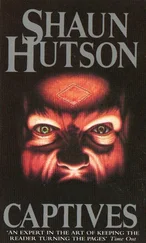Norman Manea - Captives
Здесь есть возможность читать онлайн «Norman Manea - Captives» весь текст электронной книги совершенно бесплатно (целиком полную версию без сокращений). В некоторых случаях можно слушать аудио, скачать через торрент в формате fb2 и присутствует краткое содержание. Год выпуска: 2014, Издательство: New Directions, Жанр: Современная проза, на английском языке. Описание произведения, (предисловие) а так же отзывы посетителей доступны на портале библиотеки ЛибКат.
- Название:Captives
- Автор:
- Издательство:New Directions
- Жанр:
- Год:2014
- ISBN:нет данных
- Рейтинг книги:3 / 5. Голосов: 1
-
Избранное:Добавить в избранное
- Отзывы:
-
Ваша оценка:
- 60
- 1
- 2
- 3
- 4
- 5
Captives: краткое содержание, описание и аннотация
Предлагаем к чтению аннотацию, описание, краткое содержание или предисловие (зависит от того, что написал сам автор книги «Captives»). Если вы не нашли необходимую информацию о книге — напишите в комментариях, мы постараемся отыскать её.
Captives
This is a moving account of a country shaken by communism and anti-Semitism and haunted by recent atrocities, from "a distinguished writer whose vision of totalitarianism is close to Kafka's cloudy menace, universal yet internalized" (Richard Eder,
).
Captives — читать онлайн бесплатно полную книгу (весь текст) целиком
Ниже представлен текст книги, разбитый по страницам. Система сохранения места последней прочитанной страницы, позволяет с удобством читать онлайн бесплатно книгу «Captives», без необходимости каждый раз заново искать на чём Вы остановились. Поставьте закладку, и сможете в любой момент перейти на страницу, на которой закончили чтение.
Интервал:
Закладка:
From somewhere nearby, a saxophone reared suddenly — a warm melody, perhaps coming from the school, a low, raspy woman’s voice: a harsh, hot song from a warm, metallic mouth. I remembered my comrades. They had finished their little pleasure long ago. I shouldn’t have wandered away from them. I shouldn’t withdraw, stray from them — I must return to them. Now in the fog and rain, our dormitories are like barges, somnolent, rocked by this hot, desperate melody. In this weather, sleep is deep — very deep. I must return as quickly as possible, I must find some vehicle, some van, some dump truck to get there fast. All things are reconciled there. I have a roof and bed and comrades, which is to say, my duties.
• • •
The roof and walls are damp with the breath of night. And roof and walls have woken up with me now that the cement mixers’ rumbling has just ceased. So often, the walls’ sleep and my own seem protected by the mixers’ noise. Night passes fast and peacefully among the sounds behind the walls. Once it’s quiet, the walls open their pores, suck in the damp, black air that slides along the windowpanes. It rarely happens that the cylinders’ rotation gets blocked. Then silence invades and forces me to feel the midnight.
My sleep is usually long and total.
The day’s rush from the one section to another, back and forth across improvised stairs, the running for concrete, welders, drivers, and materials is backbreaking, leg-breaking work. I don’t hear anything except precise orders, the gnashing of the crane, the horns, the crackle of welding, the splashing of concrete, and the delightful drunkenness of water. I drop, exhausted and happy: a section has been filled, tomorrow another. My fatigue has a clear and ascending name. It’s good this way. They were right to send me here to work outdoors. We communicate simply and precisely. We hurry. We have no time. Tomorrow we will raise the flat block of another morning. I love my team. Our solid movements, uniting us like brothers in the concrete colossus that rises under the inexplicable light without season. For an instant, the friction of our stiff bodies and hoarse voices seems warm and powerful. I float now for a short period of rest, in the dark of the wooden barrack, as though in a hot air balloon among the clouds. Soon the noise will begin again, and I’ll sleep. Until then I can imagine this happy flight over the earth that carries no obligation with it. In the dream of tomorrow, I, with my duties and my rights, will rotate again, uniformly, from a fixed, rigid pole. Moderately, as is proper, I’ll climb with uniform footsteps on the frigid, rotating, damp ray. Again there’ll be an agitation of ants under a somber, streaky sky: clouds, convoys of clouds, strange contours, cusps like clippers, chimes, or castles, camels, craters, crania, crocodiles, and — who knows? — maybe we’ll rendezvous, recover, hear from each other, finally, we’ll ignite, immolate, be born, insatiable, unchecked, maybe even tomorrow, with my brothers (semblables or siblings) still safe and satisfied. Look, the drumming of the building-material mixers have begun to boom again. . with the bongos of the tamerial bixers. . with the bongos and gonbos, and. . oh, let’s grab another hour of sleep till tomorrow, till morning.
TRANSLATOR’S AFTERWORD
THE LANGUAGE OF Norman Manea’s Captives can’t be discussed without an excursion into history. History animates Captives’ unhinged voices. Time after time, we hear the untrustworthy speech of people cut lose from their moorings, who try to make “anything” of themselves, anything at all demanded by the moment, just to stay afloat. Having come through the Second World War and living through its communist aftermath, many speak in hypocritical or self-serving terms.
Captives is tacitly Stalinist Romania (1947–1965), and accommodate or flounder is the unspoken motto. Party membership is the key to success, and many are ready to hide or lie about “class enemy” antecedents.
Those unable to join the Party seek to be on good terms with it: in the novel, two high school teachers — a fascist ex-legionnaire and a former priest (e.g. a representative of the old order) — grovelingly hide their true natures in order to blend into the new order. Those in relative favor with the Party rationalize their attempts to take advantage of their position. And those who fail to adapt end up drifting: the narrator’s sister, born as a replacement for the children lost during the Holocaust, emblematically changes her appearance and goals at the drop of a hat and feverishly quotes Rimbaud’s “Drunken Boat.” Her identification with the poem tags her as an unmoored vessel, a person born in denial of her family’s natural identity or trajectory. Like Captives’ narrator, she is unsettling, not out of malice but as a result of her own instability.
The characters’ chameleon-like self-invention and apparent lack of inner solidity comes of their having lived through the novel’s implicit backstory. Like Captives’ first readers, the people in this novel live in the knowledge that having been scorned by the Allies, Romania joined the Axis Powers and fought on the fascist side until August 23, 1944, when Romania’s young King Michael staged a coup that overthrew Marshal Antonescu, the fascist-allied leader. Disaster (and, for some, opportunity) came on the heels of heroism. The communists quickly ousted King Michael.
Long before the endgame politics of the mid-forties, though, in alliance with Hitler, the Antonescu regime deported Jews and Romani from the northeast of the country to concentration camps in Transnistria, which stretches from the Dniester River in Moldavia to Moldavia’s border with present day Ukraine. Hundreds of thousands of people died there, most of them Jews. While the (better known) captives in the Nazi camps ultimately fell victim to the Final Solution, those in Transnistria were left to perish of hunger, disease, and the random brutality of the guards. The survivors were liberated by the Red Army, Captives’ author and his parents among them.
The unmoored mentality of Manea’s literary captives is partly self-willed. One sees it in the language they use to think about the past. A quick trip through the text turns up many statements like these, each from a different character:
“It was necessary to gather memories, to rummage through them, to understand them so they could be forgotten, and then the amnesia would have to be checked again and again, for it would have to cover everything so there’d be no need to cheat or engage in the farce of little, passing deceptions.”
“We have to forget in order to start anew.”
“Forget it, banish it, erase it all. .”
Thinking about the past leads to self-induced amnesia, which is comparable to coma, as we are repeatedly reminded. Here’s a key passage from a philosophy book to which the narrator frequently recurs:
Time has an objective reality, even when objective sensation is weakened or eradicated because time “presses on,” because it “flows.” It remains a problem for professional logicians to know if a hermetically sealed can sitting on a shelf is outside time or not. But we know too well that time accomplishes its work even on one who sleeps. A certain doctor mentions the case of a little girl, aged twelve, who fell asleep one day and continued to sleep for thirteen years. In this interval, though, she did not remain a little girl but rather woke up a young woman, for she had grown in the meantime.
The narrator/protagonist considers that he himself has spent a large portion of his late adolescent and adult life in a hermetically sealed coma. He describes the effect of hermetically sealed reading:
Читать дальшеИнтервал:
Закладка:
Похожие книги на «Captives»
Представляем Вашему вниманию похожие книги на «Captives» списком для выбора. Мы отобрали схожую по названию и смыслу литературу в надежде предоставить читателям больше вариантов отыскать новые, интересные, ещё непрочитанные произведения.
Обсуждение, отзывы о книге «Captives» и просто собственные мнения читателей. Оставьте ваши комментарии, напишите, что Вы думаете о произведении, его смысле или главных героях. Укажите что конкретно понравилось, а что нет, и почему Вы так считаете.












